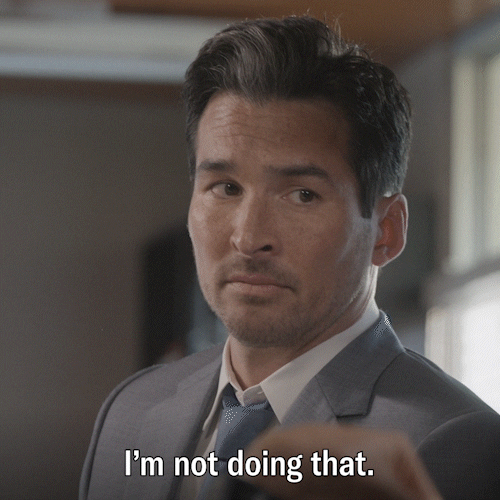What's important to consider before opening your relationship
As society continues to evolve, so do our perceptions of relationships.
Monogamy once considered the only path to happiness, is no longer the sole destination for couples seeking connection and fulfillment. The concept of open relationships, a transformative voyage into uncharted territories of emotional and physical intimacy, has gained traction.
But before actually opening your relationship, it's crucial to embark on this ENM journey with awareness and consideration.
Let’s talk about the profound importance of self-reflection, communication, emotional readiness, and other critical factors that can shape the success and well-being of your relationship.
Assessing Emotional Readiness
Take a moment to pause and reflect.
What drives you to consider opening your relationship?
Is it an insatiable curiosity for new experiences
A longing for greater emotional connections
Or perhaps a desire to challenge societal norms and find your own unique path
Whatever the reasons, understanding and accepting your motivations is the first step towards emotional readiness.
Are you prepared to share your partner's affections with others?
Can you navigate the potential rollercoaster of emotions that jealousy and insecurity may bring?
Honesty with yourself is key. Acknowledge any fears or uncertainties that may arise, allowing yourself to confront them head-on.
Remember, opening your relationship is not a remedy for existing relationship issues nor a means to escape personal challenges. I cannot stress this enough. Diving into ethical non-monogamy is a journey of growth and self-discovery, one that requires a strong emotional foundation.
So take the time to explore your emotional depths, embrace vulnerability, and ensure your heart is ready to embark on this transformative adventure.
Open Communication and Trust
Honesty must stand as the foundation upon which your open relationship is built.
Embrace transparency as a sacred virtue, for it is through open and sincere communication that trust is fostered.
Share your desires, fears, and insecurities with your partner(s), creating a safe space where vulnerability can flourish.
Be willing to listen and receive with an open heart, fostering an environment where all voices can be heard.
Establishing clear channels of communication is essential. Regular emotional and logistical check-ins help ensure that all parties are on the same page.
Explore effective methods of communication that resonate with you and your partner(s), whether it be heartfelt conversations, written letters, or shared journals. Find what works best for you and use it as a tool to deepen your connection.
DISCOVER YOUR LIMITS
Learn when to say “no” to make sure your needs are being respected.
Setting Boundaries and Expectations
Just as a garden thrives with clear boundaries, your relationship flourishes when nurtured with respect and understanding. Defining boundaries together is an essential step towards creating a framework supporting all involved's well-being.
Take the time to explore your individual needs, desires, and limits. Engage in open conversations with your partner(s) to establish boundaries that honor and protect the core of your relationship.
Remember, boundaries are not meant to restrict or control but rather to foster an environment of safety, trust, and consent. They serve as guideposts, indicating where you feel most comfortable and where you need additional support.
Negotiating agreements is another crucial aspect of setting the stage for a successful open relationship. Discuss expectations openly, honestly, and compassionately. Define permissible and not, considering aspects such as emotional connections, physical intimacy, and time management.
Flexibility is key in this delicate dance of exploration. Be prepared for unexpected emotions and surprises along the way. Maintain a willingness to revisit and renegotiate boundaries as needed, ensuring that they align with the ever-evolving dynamics of your relationship.
Navigating Jealousy and Insecurity
Opening your relationship with a compass of self-awareness and a rudder of compassion can navigate the tumultuous waters of jealousy, strengthening the bond.
Jealousy often stems from a fear of loss or inadequacy, triggered by the thought of your partner(s) sharing intimate moments with others.
It's crucial to remember that jealousy is a natural emotion, but it doesn't define you or your relationship.
Acknowledge your jealousy, honor it, and delve deeper into its roots. Engage in self-reflection to uncover the underlying causes. Is it a fear of being replaced? A sense of feeling not good enough?
Furthermore, all those with experience in moving out after a long relationship know that feeling of utter defeat. Is there a cure? Communication is the life raft that helps you weather the storm of jealousy and other hindering factors.
Share your feelings openly and honestly with your partner(s).
Allow yourself to be vulnerable, expressing your concerns without judgment. Give space for your partner(s) to do the same.
You can cultivate empathy, reassurance, and understanding by embracing open dialogue.
Ever agree to boundaries you’re uncomfortable with?
Get the people-pleasing workbook!
Opening your relationship: Managing Time and Priorities
As you navigate the intricacies of shared moments and diverse commitments, managing time and priorities becomes an art form—a delicate dance of balance and consideration.
Reflect on your personal capacity and assess how much time and energy you can realistically devote to each connection.
Set realistic expectations with your partners, acknowledging that your time will be divided.
Shared calendars, regular check-ins, and open conversations about time commitments create a structure that allows all parties to feel seen, valued, and included.
Be mindful of the ebb and flow of emotions and availability, as well as the need for flexibility and understanding. It's crucial to ensure fairness and consideration for all partners.
Avoid falling into patterns of neglect or favoritism by regularly assessing and reassessing the distribution of your time and attention. Strive for equitable arrangements that honor the needs and desires of everyone involved.
Seeking Community and Support
It can get lonely. Building a network of individuals who share similar relationship philosophies can be invaluable.
Seek out online and offline communities where you can engage in open and honest conversations about the joys and challenges of open relationships.
Surround yourself with individuals who can offer insights, share experiences, and provide support without judgment.
Beyond community, professional guidance can be a beacon of light in the sometimes murky waters of open relationships. Therefore, therapists, relationship coaches, or counselors specializing in non-monogamy can provide valuable guidance and tools to navigate the complexities of multiple connections.
Final words
When opening your relationship, remember: Consent is the cornerstone of ethical non-monogamy. The enthusiastic agreement underlies all interactions and experiences within your relationships.
So seek consent not only in the context of physical intimacy but also in emotional connections, time commitments, and any potential changes to the relationship dynamics.


